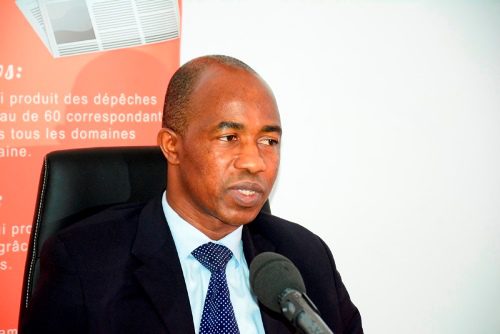He said within that context, everything is done “in transparency,” in the presence of political actors, representatives of the elections supervisory body and civil society.
The magistrate was speaking on Wednesday as the guest at the APA Grand Oral.
Teliko was asked about the state of mind of some opponents who, regarding their presidential candidacy, had difficulties regarding the verification of their sponsorships by the Constitutional Council.
Out of 27 aspiring candidates whose sponsorship applications were received, only five were accepted, three have 48 hours to rectify and the other 19 were definitively rejected.
However, 23 potential candidates signed a press release on Tuesday in which they declared their alliance to fight against sponsorship system, and to step up their political fight against the government.
“The new thing is the sponsorship. This is a system that has never been implemented before. And like all new things, there are always concerns (misunderstandings, etc.),” Souleymane Téliko added.
However, “I think it may be after the election that we can take stock of all this to know exactly where the problem lies.”
In addition, Téliko continued, the recommendations of the UMS, made at the launch of its project entitled “Sunu Election” to define the role and responsibility of judges in the electoral process, have been taken into account “in part” regarding sponsorship.
The UMS recommendations include the establishment of a “transparent and inclusive monitoring process” by the Constitutional Council; and, allowing all candidate representatives and even civil society to “see in concrete terms how the monitoring is carried out so that there is no suspicion.”
“Now, there are seven representatives of civil society there. Maybe they can tell us how the sponsorship is going. But for the time being, I am not in a position to make a precise assessment of the degree of reliability of the control procedures. Perhaps after the elections, we can do it,” he said.
“Our job, as I said, begins with the polling stations until the results are announced. Only the Constitutional Council works on the (electoral register) file and the Directorate of File Automation (DAF). I suppose that DAF is supposed to give the Constitutional Council a good file,” the magistrate said, noting that it will be up to the various entities mentioned above “to give their assessments on that.”


